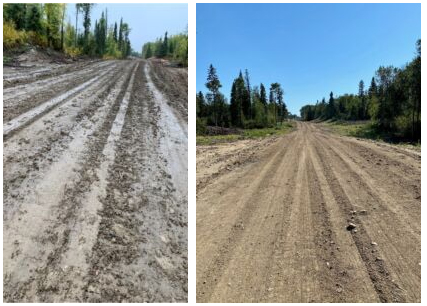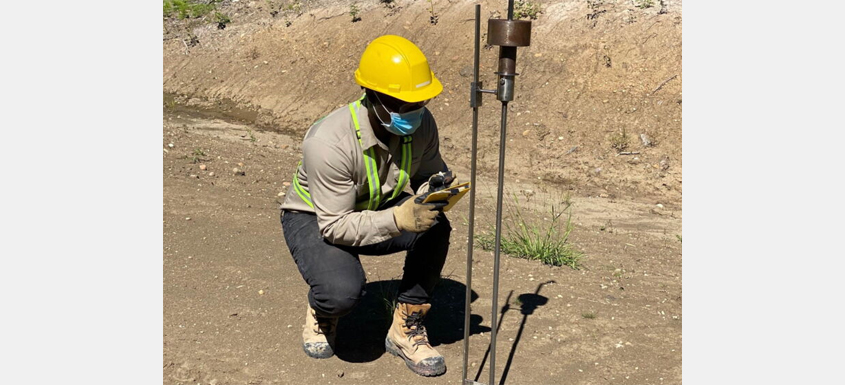In forestry, where a considerable number of roads are built annually, the excessive presence of water in soils has a significant impact on road performance. This leads to reduced road reliability, increased road life cycle costs and reduced access to fibre.
To overcome this challenge, building roads in advance, typically called road seasoning, is one of the most frequently used solutions. This technique involves building the road subgrade and allowing it to consolidate over a set period of time in order to reduce its moisture content prior to laying the granular base and wearing course materials.
Although this practice is widespread, its effectiveness has not been quantified. With this in mind and in collaboration with several members of the forest industry, FPInnovations has evaluated the technical, financial, and functional benefits of this practice, to ultimately help build better roads that cost less.
Optimizing the costs and performance of forest roads
A three-year research project was performed on 22 road sections representative of various soil types and conditions encountered in Canada. A number of variables that could affect the performance of road seasoning were studied.
The findings of this large-scale research project have made it possible to quantify the tangible advantages of road seasoning and to validate its benefits. In fact, for all the sections studied, it was noted that the effectiveness of the road seasoning technique depends mainly on the quality of the subgrade soil. Other factors can also impact the efficiency and effectiveness of the road seasoning technique, namely the road geometry and topography, geological conditions, construction practices (compaction, reinforcement, preliminary drying, etc.) and the duration of consolidation (1 year, 2 years, etc.).
 Left: Road before 12 months of seasoning; Right: after 12 months of seasoning.
Left: Road before 12 months of seasoning; Right: after 12 months of seasoning.
The results of this project showed a decrease in road maintenance frequency, an increase in transportation efficiency and safety and improved rolling comfort.
Winning practices
There is no doubt that roads built in advance provide many economic and operational benefits, not to mention the collateral benefits primarily associated with heavy equipment operators in the forest. This project allowed FPInnovations to develop a unique set of data from various Canadian regions and soil types. Building on this data and results, an economic model has been developed for FPI members to develop road seasoning strategies that reduces costs and maximizes road performance. The FPI team is also available to work in the field to review current road construction practices, assess the costs and develop winning strategies.
Interested in learning more? contact
Source: FPInnovations
